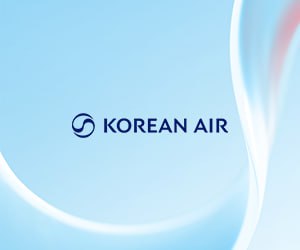
Girls at the AusCam Freedom Project learn about avoiding the dangers of Covid-19. Photo supplied
It was early April this year when AusCam Freedom Project (AFP) started the Emergency Response programme, which is used as a vehicle to distribute urgent relief packages of basic food and medical supplies in light of the Covid-19 pandemic.
Each relief package differs depending on a family’s particular needs. But typically, it includes hygiene supplies such as soap and hand sanitisers, informative materials on coronavirus prevention, urgent crisis intervention support, and food items.
“What started as a simple relief effort more than 50 days ago has turned into an organised and strategic operation to save girls from trafficking, hunger and other dangers.
“It includes hygiene supplies to avoid infection, Covid-19 safety information and food staples,” says Julie Dowse, the AFP founder.
Dowse says on its website: “On the first day we launched our response strategy, 85 families advised us they had lost their main source of income and had minimal food left to feed their families.
“Many who had young babies had no money to purchase baby formula. Within a few more days this rose to 141 families.”
A single mother, one of the programme beneficiaries, who runs a small business, has lost a large portion of her income with the loss of business during this time, Dowse says.
The relief package has allowed the family to reduce their expenses on groceries and save for rent, electricity and water bills.
Part of the Shine Scholarship Programme, the woman had enrolled in 2014 and is currently in her second year at university. She was quoted as saying: “After receiving the package, I learnt more about hygiene practices and how to cope with it during Covid-19.”
Another student works as a part-time assistant teacher to help afford extra classes. But due to the pandemic, schools have shut, leaving her unable to attend or earn any money.
Her mother suffers from kidney issues and requires daily medication. Unfortunately, her condition has gotten worse and many other members of the family have also lost their primary sources of income, putting a strain on their finances.
“Our staff are working closely with this family and helping to take her mother to the hospital to seek medical attention.
“The family was in desperate need, but now after receiving a relief package, they can remain inside and reduce any exposure to the virus with the concern of their mother’s illness,” says Dowse, who is also AFP’s International Programmes director.
The AFP itself is an international NGO that works to prevent the trafficking and exploitation of adolescent girls from ages 12-25, which are the most vulnerable ages before it begins.
Dowse and her husband Geoff founded AFP while they were living and working in Phnom Penh.
Originally from Sydney, the Dowses spent four years in Cambodia building up AFP’s national team before returning to Australia to advocate, raise funds and develop strategic partnerships for the organisation.
Julie Dowse has spent the majority of her professional life in the child welfare and child protection sector, working for Barnardos Australia as a foster career for 13 years and in their administration team for five years.
Dowse also worked with the Australian Red Cross in managing a residential home for adolescent girls who were either pregnant or parents. She earned a Master of Arts degree in Child Protection Investigation.
AFP was founded in January 2012 in response to an identified need to have a transitional home for adolescent girls who were in after-care shelters, following their rescue from trafficking and/or exploitation.
Dowse says: “This was the next stage in their rehabilitation, but with a strong focus on education, life skills and vocational training to build their capacity and enable them to reintegrate into their local communities.”
Two programmes are being implemented under the basic project. Shine focuses on keeping girls in school and SHE empowers girls through leadership training, mentoring and other opportunities.
Shine is a one-to-one mentoring programme that also provides educational resources, supplies and psychosocial support through an individualised case management model to at-risk girls to keep them in school and protect them from trafficking and exploitation.

AFP’s SHE programme empowers girls through mentorship training. Photo supplied
“We know that access to education alone cannot be a solution so SHE enables girls to make key life decisions independently, realise their full potential and develop the skills needed to become leaders in their communities,” says Jessie Teerman, its development director, who is also based in Sydney.
“We do not run a residential programme. All girls we serve live within their family units or with guardians. Our staff conduct home visits to ensure girls are safe and have the means to attend school,” she says.
During the pandemic, children are particularly vulnerable with school closures as school-based services are interrupted along with other interventions for those deemed at-risk.
“There are greater difficulties in accessing health services, in addition to increased burdens for example separation from caregivers due to quarantine or severe illnesses or death,” says Teerman.
She says that based on studies from national and international sources, AFP predicted that Covid-19, like any crisis, has a strong impact on gender norms and exacerbates gender-based violence.
“As livelihoods are affected, intimate partner violence may increase. Further, self-isolation may increase the psychological impacts of violence as well as the severity and frequency of the violence taking place.
“Violence and other forms of child abuse may increase at the family level. The closure of schools and other issues surrounding Covid-19 which may have a negative economic impact may increase the likelihood of survival sex, transactional sex and risk of sexual exploitation and abuse in the community,” Teerman says.
Along with the relief packages, a crisis hotline was launched. It aimed to reach as many women and girls as possible to mitigate the risk of exploitation and trafficking of those that are vulnerable.
Hundreds of girls also receive phone credits to reach their hotline’s social worker round-the-clock, who will provide immediate crisis intervention to families at the greatest risk.
Dowse tells The Post: “We are now operating a Women and Girls Crisis Hotline (011 444 080) to provide crisis intervention and offer our targeted population with immediate food, health and safety.”
She says the crisis hotline will help identify the needs of communities before, during and after Covid-19. The project provides short-term urgent relief supplies, support and referrals.
But more importantly, it also offers long-term resources for girls to ensure they remain safe, can return to school and pursue a brighter future after the virus dies down.
“One of our first hotline callers was a mother with a 15-year-old daughter and a young baby. She had fled from her home as her (second) husband tried to sexually assault her daughter while she was at work,” says Dowse.
She says the problem arose from the fact that the teenager was not in school and was left alone in the house with her step-father.
In this situation, the young girl is susceptible to abuse or exploitation as there was the potential for the perpetrator to sell her to traffickers who are preying on family vulnerability during this crisis.
Dowse says in one of the families, a girl and her brother needed to work to support their family due to the Covid-19 pandemic as their father has fallen ill and can no longer work. Her mother also had to stop selling food to care for her husband.
“The AFP social worker is now working with the local authorities to secure the girl’s protection and the family is receiving food assistance, including baby formula while they develop a long-term plan.
“So far, we have managed to reach over 180 families and the list is growing,” says Dowse.
The founder tells The Post that AFP currently partners with five government schools and two private schools in the Chamkarmon, Dangkor and Stung Meanchey districts of Phnom Penh.
“The girls we support are assessed by our social workers and are considered to be at-risk due to their family backgrounds including poverty, single-parent households, living with grandparents or living far from their schools and a variety of other concerns.
“We currently have 165 girls enrolled in our school scholarship programme. They receive psychosocial support and school materials.
“Last year, AFP also supported over 700 girls with life skills education, career counselling, girls clubs and other supplementary support,” she says.
Like many businesses as well as the NGO sector, revenue and donations have been severely impacted due to the pandemic.
With the generosity of people and businesses in Australia, the US and Cambodia supporting the Covid-19 response strategy, AFP is also forming its long term vision.
“We need donors to also think about helping us build our economic sustainability to ensure our programmes can pick up once everything returns to normal,” says Dowse.
“Our staff work tirelessly to ensure that girls are safe while schools are closed. We are continuing to assemble relief packages, operate our 24-hour hotline for crisis intervention and collaborate with national and international partner organisations to serve as many girls and their families as possible.
“Your financial support is essential for doing this and building a stronger Cambodia for post-Covid-19. Just $49 can supply a month’s worth of food to a family in need,” says Dowse.
For more information about AusCam Freedom Project or to offer a donation for teenage girls and their families, visit their website at https://www.auscamfreedomproject.org/
The hotline number is 011 444 080 and is now open for any women or girls requiring assistance.














